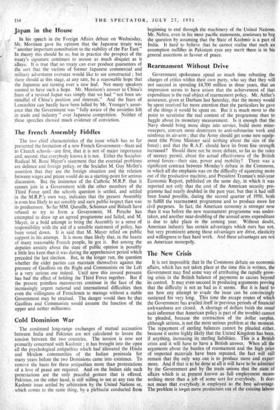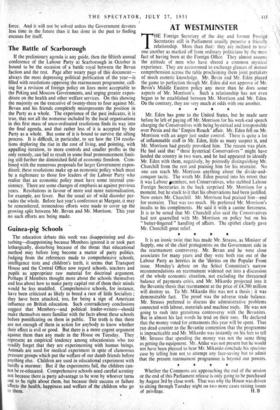The New Crisis
It is not impossible that in the Commons debate on economic affairs, which has not taken place at the time this is written, the Government may find some way of attributing the rapidly grow- ing crisis in the British balance of payments to causes beyond its control. It may even succeed in producing arguments proving that the difficulty is not as bad as it seems. But it is hard to see how any attempt to evade the issue can be convincingly sustained for very long. This time the escape routes of which the Government has availed itself in-previous periods of financial awkwardness are closed. A shortage of dollars (with the usual tacit inference that American policy is part of the trouble) cannot be pleaded, because the contraction of the dollar surplus, although serious, is not the most serious problem at the moment. The repayment of sterling balances cannot be pleaded either, because it seems highly likely that the United Kingdom-has been, if anything, increasing its sterling liabilities. This is a British crisis and it will have to have a British answer. When all the argunients about the burden of rearmament and the high price of imported materials have been repeated, the fact will still remain that the only way out is to produce more and export more. And if that is to be done at all it will have to be admitted by the Government and by The trade unions that the state of affairs which is at present known as full employment means nothing more than a job of some sort for everybody. It does not mean that everybody is employed to the best advantage. The problem is to.get more production out of the existing labour force. And it will not be solved unless the Government devotes less time in the future than it has done in the past to finding excuses for itself.



































 Previous page
Previous page